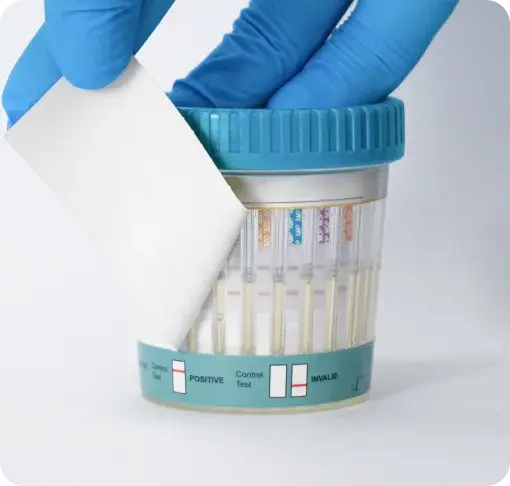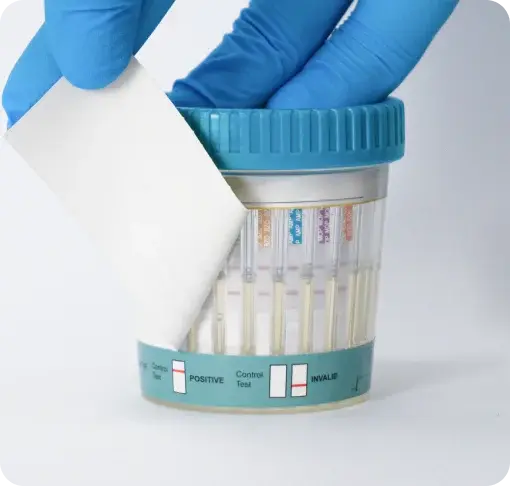How AttoSure's Urine Test Strips Can Help A Growing Danger
We had a quick sit down with Brandon Wickins of AttoSure to get the lowdown on nitazenes and our new POC testing products. Nitazene is a synthetic opioid that's finding it's way into heroin supplies killing people alnog the way.
Q: What are Nitazenes?
A: Nitazenes are a potent class of synthetic opioids. Recently, they’ve become a significant problem in the UK because they’re being mixed with heroin. The result? A dangerous and often lethal cocktail that users are unaware they’re consuming.
Q: Why are Nitazenes being mixed with heroin?
A: This isn’t something heroin users are choosing to do. It happens before the heroin reaches the UK. Due to supply issues in places like Afghanistan, where the Taliban are attempting to stop heroin production, drug traffickers are mixing nitazenes with heroin to stretch their supply. This means what people think is heroin may contain a dangerously strong synthetic opioid.
Q: What impact is this having on heroin users?
A: Sadly, heroin users are effectively playing Russian roulette. Nitazenes are much stronger than heroin, and if mixed in, they can cause users to overdose, even if they believe they are taking their normal amount of heroin.
Q: Is this similar to finding fentanyl in cocaine?
A: Yes, it’s a similar situation. Much like fentanyl being found in other drugs, nitazenes are added to heroin without the user’s knowledge, increasing the danger significantly.
Q: Where should we be testing for nitazenes?
A: One of the key places to start testing for nitazenes is in drug treatment services. These facilities have a portion of heroin users who may be unknowingly consuming heroin mixed with nitazenes. By testing for nitazenes, these services can help identify the prevalence of this dangerous substance in different regions of the UK, warning both individuals and authorities of the risks.
Q: How does testing help?
A: Testing not only protects the individual by letting them know they may be at risk of overdose, but it also helps drug treatment centers raise alarms for authorities. By identifying nitazenes in the supply, centres can alert communities that their heroin might be laced, making it far more dangerous than they realise.
Q: Are nitazene drug tests common?
A: Not yet. Nitazene tests are difficult to find, and up until now, there have been powder and liquid tests available (i.e. to test the drug, not the user). However, there hasn’t been a rapid urine test for nitazenes—until now. That’s where the AttoSure tests comes in.
Q: What’s the difference between a liquid/powder test and a urine test?
A: Liquid and powder tests check the drug itself, which some services provide to heroin users to test their supply. The AttoSure urine tests look for metabolites of nitazenes in urine, meaning it can be used in a controlled environment by healthcare professionals to see if someone has already consumed heroin mixed with nitazenes.
Q: What would the ideal urine test cup for healthcare settings include?
A: For a comprehensive solution, as well as the urine strip, we are including the nitazene test strip within a urine cup. The cup tests for traditional illicit drugs as well as therapeutic drugs. It would include tests for amphetamines, buprenorphine, benzodiazepines, cocaine, methadone, opiates, 6-MAM, cannabis, and then of course, nitazenes.
Q: Why include 6-MAM in the urine cup test?
A: The 6-MAM (6-Monoacetylmorphine) test is important because it detects a specific metabolite of heroin found only in a urine sample after heroin use. By including both the 6-MAM and nitazene tests in our cup, we can definitively tell if someone has taken heroin and whether that heroin was mixed with Nitazenes.
Q: Is there any cross-reactivity between nitazenes and opiates in your tests?
A: Initially, there was some cross-reactivity with opiates. However, the current version of our test strip has no cross-reactivity with opiates, ensuring accurate detection of Nitazenes.
Q: Is confirmation testing for nitazenes available in labs?
A: Unfortunately, not many laboratories have the capability to confirm nitazene use at the moment. This makes rapid testing, like the AttoSure Urine Strip and Urine Cup, especially important in providing real-time results and protecting patients.
AttoSure is proud to introduce our urine strip and urine cup with nitazene detection, helping healthcare providers keep heroin users safe from this growing threat. By incorporating nitazene testing, we’re taking a critical step toward reducing overdose risks and providing clarity in an uncertain landscape.
Want to learn more about the AttoSure Nitazene Urine Strip and Urine Cup? As for a quote today!
Read More about Nitazene Testing
